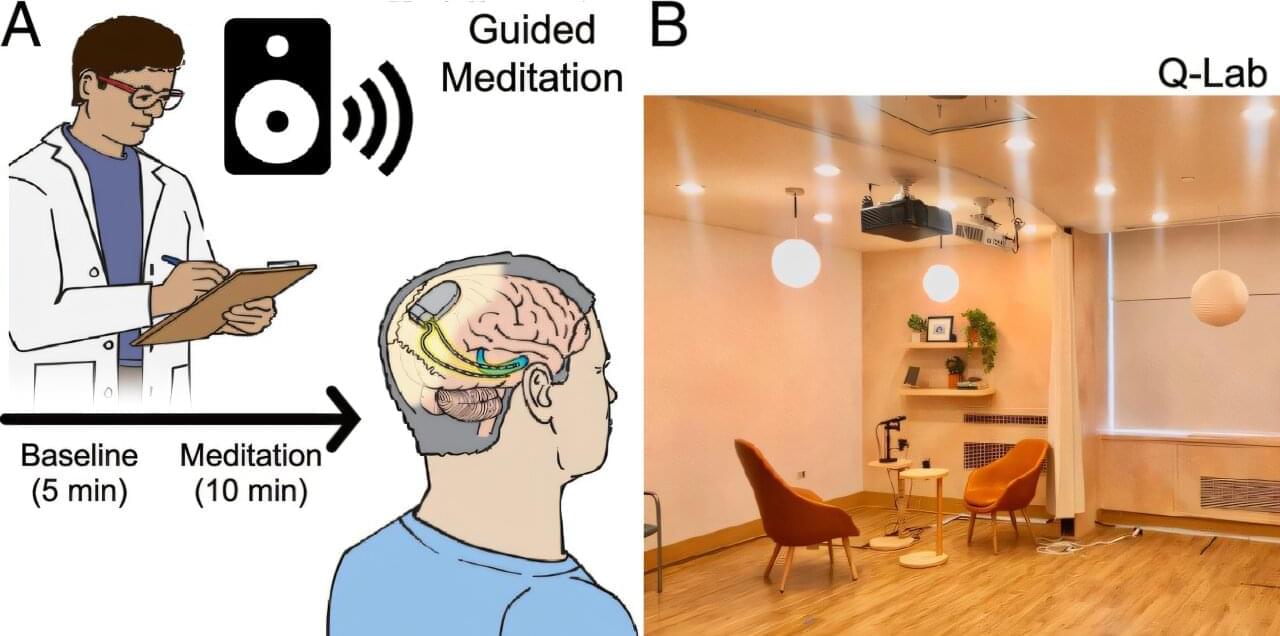Researchers using intracranial electroencephalogram (EEG) recordings from deep within the brain found that meditation led to changes in activity in the amygdala and hippocampus, key brain regions involved in emotional regulation and memory.
The study, conducted by researchers at the Icahn School of Medicine at Mount Sinai and published Tuesday, February 4, in Proceedings of the National Academy of Sciences, may help explain the positive impact these practices have and could contribute to the development of meditation-based approaches for improving memory and emotional regulation.
Previous research has shown that meditation—a set of mental techniques to focus attention and awareness—can improve mental well-being and potentially help improve psychiatric diseases like anxiety and depression. In combination with its beneficial clinical effect, previous brain research has shown a connection between meditative practice and brain activity. Yet the specific neural activity underlying meditative practices and their positive effects is still not well understood.
